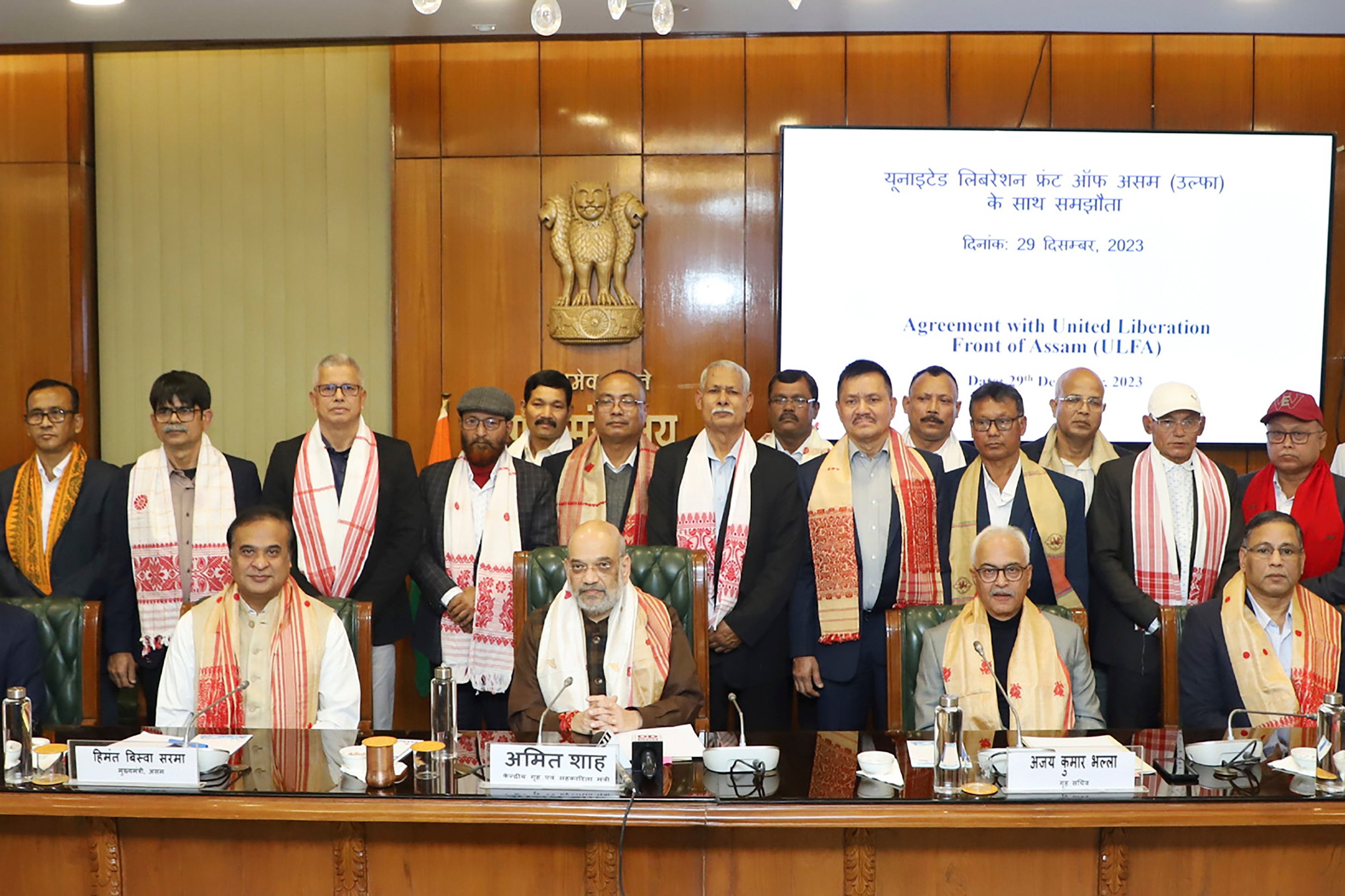A rebel group in the Indian state of Assam signs a peace accord with the government
A rebel group that fought for decades to free India’s northeastern state of Assam from New Delhi’s rule has signed a peace accord with the government pledging to end the insurgency in the region

A rebel group that fought for decades to free India’s northeastern state of Assam from New Delhi’s rule on Friday signed a peace accord with the government pledging to end the insurgency in the region.
The United Liberation Front of Asom or ULFA, led by Arabinda Rajkhowa, concluded 12 years of negotiations with the Indian government. The signing ceremony in New Delhi was attended by India’s Home Minister Amit Shah and the top elected official of Assam state Himanta Biswa Sarma.
However, the group’s hard-line faction, led by Paresh Baruah, is not part of the agreement. Baruah is believed to be hiding somewhere along the China-Myanmar border, the Press Trust of India news agency said.
ULFA, formed in 1979 demanding a “sovereign Assam,” carried out a reign of terror in Assam state in the late 1980s, including extortion, kidnappings and killings, especially targeting the state’s flourishing tea companies. It killed several tea planters.
India banned ULFA in 1990. It then set up bases in neighboring Bangladesh and coordinated with several other insurgent groups in India’s northeast.
Indian military operations against ULFA began in 1990 and have continued until the present.
In 2011, ULFA split after Bangladesh handed over several top ULFA leaders, including Rajkhowa, to Indian authorities. The Rajkhowa faction joined peace talks with the Indian government that year.
ULFA shifted its base to Bhutan, but in 2003 it was attacked by the Indian and Bhutanese armies. Rebels were dislodged from 30 camps in the Bhutanese jungles.
Indian forces are battling dozens of ethnic insurgent groups in India’s remote northeast who are pushing demands ranging from independent homelands to maximum autonomy within India.
In 2020, more than 600 insurgents belonging to different rebel groups surrendered to Indian authorities in the northeast in response to a government peace initiative that will allow them to rejoin mainstream society, police said.
They laid down assault rifles, grenades, bombs and other weapons and were kept in government-run camps and taught technical skills to equip them to take up jobs.
___
Wasbir Hussain reported from Guwahati, India.
Bookmark popover
Removed from bookmarks